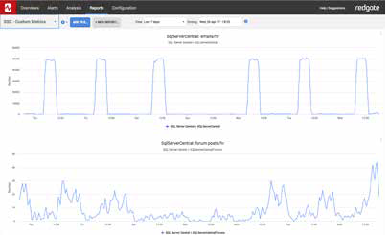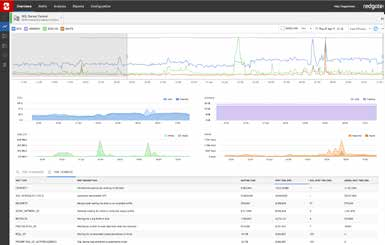Metrics install automatically if you have Redgate Monitor installed.
If you are using Redgate’s SQL Server monitoring tool, Redgate Monitor, you can instantly install and run this metric on your servers.
Trying to determine if you have pressure in your buffer allocations can be difficult. Buffer cache hit ratio is an almost useless metric, so you need a mechanism to let you know if there’s a problem in that area. You can use SQL Server Memory Manager Object and then compare the Target Server Memory to the Total Server Memory allocations. Target Server Memory is essentially the ideal amount of memory the server can consume, while Total Server Memory specifies the amount of memory the server has committed using the memory manager. When the target is below the current committed, you’re looking at a buffer issue. This query simply compares the two with subtraction so that you’ll know when you’re looking at negative numbers you’ve hit a buffer problem.
Metric definition
Name
Buffer pressure
Description
Uses the difference between "Target Server Memory" and "Total Server Memory" from SQL Server Memory Manager Object.
The T-SQL query that will collect data
Instances to collect from
Select all
Databases to collect from
master
Collection frequency
60
Use collected or calculated values
Leave the Use a calculated rate of change between collections check box unchecked
Metric collection
Enabled
Alert definition
Alert name
Buffer pressure detected
Description
Raise an alert when the metric value goes
Below the defined threshholds
Default threshold values
| High: | 0 |
| Medium: | Turn off check box |
| Low: | Turn off check box |
Raise an alert when the threshold is passed for
1 collection
Alert is
Enabled
 21,615
21,615 
